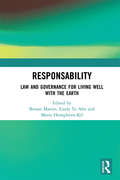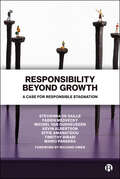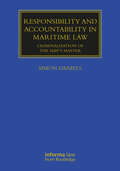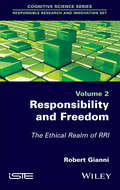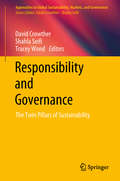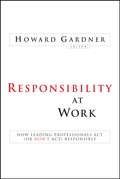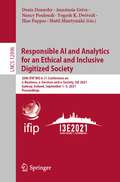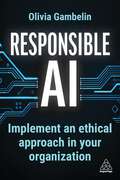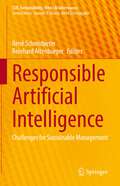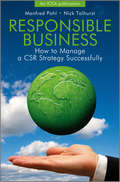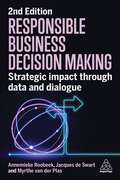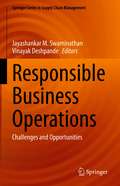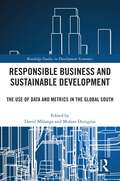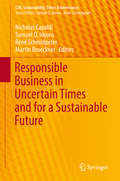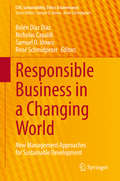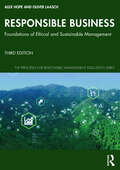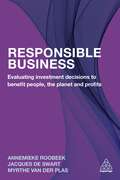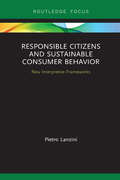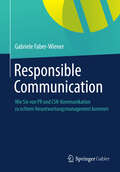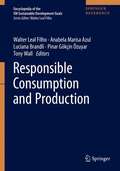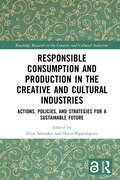- Table View
- List View
Responding to the Wii?
by Andrei Hagiu Hanna HalaburdaAfter years of gaming console industry leadership, how should Sony respond to the overwhelming success of competitor Nintendo's user-friendly Wii over Sony's high-tech PlayStation 3? It was August 2008 and Kazuo Hirai, chief executive of Sony Computer Entertainment Inc. (SCEI), was contemplating questions from reporters about how Sony planned to respond to Nintendo's Wii console, which was dramatically leading Sony's PlayStation 3 and Microsoft's Xbox 360 consoles in sales. The Wii's supremacy was especially disconcerting to Hirai, given that Sony had dominated the videogame industry and largely defined its course since 1995. But the tables had turned dramatically in the current generation. Though the Wii was technologically much less advanced than were PS3 and Xbox 360, the Wii's ease of use, innovative motion-sensitive controller, and simple but fun games had made the console a hit with all demographics: nine to 65 years old, male and female. As a result, Nintendo had stolen a march on its two larger rivals by appealing to people who were traditionally not avid videogame users. Microsoft's and Sony's more powerful machines remained targeted at the traditional "core gamer" audience: 18-to-65-year-old males. Hirai was determined to restore that supremacy in the current generation or the next. He knew that whether or not he publicly defined SCEI's strategy as a response to Wii, he had to find a way for his company to deal with the new order of the videogame industry that Nintendo had created. In seeking to do so, Hirai might find guidance in the history of the industry, which had been marked by rapid and frequent changes of fortune.
ResponsAbility: Law and Governance for Living Well with the Earth
by Betsan Martin Linda Te Aho Maria Humphries-KilResponsAbility challenges conventional thinking about our governance and legal frameworks. The cross-currents of persisting, established worldviews, knowledge systems, institutions, law and forms of governance are now at odds with future-facing innovations designed to help societies transition to both low-carbon economies and social equity. This book explores the ways in which we can move to new governance and legal structures that more effectively reflect our changed relationship with the Earth in the Anthropocene. The book is written by a group of eminent scholars and leading experts from a diverse range of backgrounds, all of whom bring new knowledge and analysis from across oceanic and continental regions. Many are from the discipline of law, whilst others bring expertise on indigenous knowledge, climate, water, governance and philosophy to engage with law. Contributors include His Highness Tui Atua Tupua Tamasese Ta’isi Efi, Head of State of Samoa, Judge Sir E. Taikakurei Durie, Dame Anne Salmond, Pierre Calame and Adrian Macey. A number of scenarios are presented throughout the book for the realignment of global and local law to institutionalise responsibility for social, environmental and earth-centered equity.
Response Control and Seismic Isolation of Buildings
by Masahiko Higashino Shin OkamotoThis state of the art report from an international task group (TG44) of CIB, the International Council of Building Research Organizations, presents a highly authoritative guide to the application of innovative technologies on response control and seismic isolation of buildings to practice worldwide. Many countries and cities are located in earthquake-prone areas making effective seismic design a major issue in structural engineering. Reassuringly, structural response control and seismic isolation have advanced remarkably in recent years following numerous studies internationally. Several major conferences have been held and reports have been written but little has been issued on the application of the technologies to good structural engineering practice. Plugging that gap, Response Control and Seismic Isolation of Buildings presents researchers in structural engineering (dynamics) and construction management with up-to-date applications of the latest technologies.
Responsibility Beyond Growth: A Case for Responsible Stagnation
by Stevienna De Saille Fabien MedveckyCritically assessing growth-based models of innovation policy, this enlightening study sparks new debate on the role and nature of responsible innovation. Drawing on insights from economics, politics, and science and technology studies, it proposes the concept of 'responsible stagnation' as an expansion of present discussions about growth, degrowth, responsibility and innovation within planetary limitations. This important intervention explores real-world relationships between the political economy, innovation policy and concepts of responsibility, and will be an invaluable resource for individuals and civil society organizations who seek to promote responsible innovation.
Responsibility and Accountability in Maritime Law: Criminalisation of the Ship’s Master (Maritime and Transport Law Library)
by Simon DanielsThe criminalisation of seafarers has been observed as a growing phenomenon for more than forty years, presenting a picture of increasing liability upon the Master even though their responsibilities remain essentially unchanged in generations of maritime law. Because of the demand by society to find someone to blame for environmental and human loss, there is a constant flow of cases, which serve to confirm the phenomenon but offer no solutions to defend the innocent. The structure of the maritime environment in which they work has changed dramatically, as evidenced by the complex evolution of fleet ownership and management, leaving the Master with diminished management influence. This book has been written in a format which meets the needs of lawyers, academics and maritime professionals, with the aim to analyse the character of criminalisation to determine the features which characterise the phenomenon in Port and Flag State contexts; it interrogates the aim to define the nature of criminalisation and identifies the constituent problems in such criminal accountability. Each chapter relies heavily on case studies to illustrate how the laws which reflect national policy underpinning those priorities are applied in practice. This structure enables an understanding of the problems in the criminal process, with a view to offering options for solutions. The book is directly relevant to a broad range of parties which includes lawyers, academics, P & I clubs, seafarers, shipowners, managers and agents, and national and international seafaring unions.
Responsibility and Freedom: The Ethical Realm of RRI
by Robert GianniResponsible Research and Innovation appears as a paradoxical frame, hard to conceptualize and difficult to apply. If on the one hand research and innovation appear to follow logics blind to societal issues, responsibility is still a blurred concept interpreted according to circumstances. Different perspectives are implied in the RRI discourse rendering difficult also its application, because each social dimension proposes a different path for its implementation. This book will try to indicate how such conflictual understanding of RRI is caused by a reductive interpretation of ethics and, consequently, of responsibility. The resulting framework will represent an ethical approach to RRI that could help in overcoming conflictual perspectives and construct a multi-layer approach to research and innovation.
Responsibility and Governance: The Twin Pillars of Sustainability (Approaches to Global Sustainability, Markets, and Governance #8)
by David Crowther Shahla Seifi Tracey WondThis book examines various aspects of changes to business behavior through the lenses of the “twin pillars” of sustainability – responsibility and governance. It discusses whether the focus of corporate social responsibility has changed so much that we need to think about redefinitions of key concepts in the field, and analyses both the theory and practice in a variety of ways to enable conclusions to be drawn about the changes needed to any definitions.This approach is based on the tradition of the Social Responsibility Research Network, which in its 15-year history has sought to broaden the discourse and to treat all research as inter-related and relevant to business. This book consists of the best contributions from the 16th International Conference on Corporate Social Responsibility and 7th Organisational Governance Conference held in Derby, United Kingdom in August/September 2017.
Responsibility at Work
by Howard GardnerFilled with original essays by Howard Gardner, William Damon, Mihaly Csikszenthmihalyi, and Jeanne Nakamura and based on a large-scale research project, the GoodWork® Project, Responsibility at Work reflects the information gleaned from in-depth interviews with more than 1,200 people from nine different professions--journalism, genetics, theatre, higher education, philanthropy, law, medicine, business, and pre-collegiate education. The book reveals how motivation, culture, and professional norms can intersect to produce work that is personally, socially, and economically beneficial. At the heart of the study is the revelation that the key to good work is responsilibilty--taking ownership for one's work and its wider impact.
Responsibility for Human Rights
by David Jason KarpResponsibility for Human Rights provides an original theoretical analysis of which global actors are responsible for human rights, and why. It does this through an evaluation of the different reasons according to which such responsibilities might be assigned: legalism, universalism, capacity and publicness. The book marshals various arguments that speak in favour of and against assigning 'responsibility for human rights' to any state or non-state actor. At the same time, it remains grounded in an incisive interpretation of the world we actually live in today, including: the relationship between sovereignty and human rights, recent events in 'business and human rights' practice, and key empirical examples of human rights violations by companies. David Karp argues that relevantly public actors have specific human rights responsibility. However, states can be less public, and non-state actors can be more public, than might seem apparent at first glance.
Responsible AI and Analytics for an Ethical and Inclusive Digitized Society: 20th IFIP WG 6.11 Conference on e-Business, e-Services and e-Society, I3E 2021, Galway, Ireland, September 1–3, 2021, Proceedings (Lecture Notes in Computer Science #12896)
by Yogesh K. Dwivedi Matti Mäntymäki Ilias Pappas Denis Dennehy Anastasia Griva Nancy PouloudiThis volume constitutes the proceedings of the 20th IFIP WG 6.11 Conference on e-Business, e-Services, and e-Society, I3E 2021, held in Galway, Ireland, in September 2021.*The total of 57 full and 8 short papers presented in these volumes were carefully reviewed and selected from 141 submissions. The papers are organized in the following topical sections: AI for Digital Transformation and Public Good; AI & Analytics Decision Making; AI Philosophy, Ethics & Governance; Privacy & Transparency in a Digitized Society; Digital Enabled Sustainable Organizations and Societies; Digital Technologies and Organizational Capabilities; Digitized Supply Chains; Customer Behavior and E-business; Blockchain; Information Systems Development; Social Media & Analytics; and Teaching & Learning. *The conference was held virtually due to the COVID-19 pandemic.
Responsible AI: Implement an Ethical Approach in your Organization
by Olivia GambelinResponsible AI is a guide to how business leaders can develop and implement a robust and responsible AI strategy for their organizations.Responsible AI has rapidly transitioned to a strategic priority for leaders and organizations worldwide. Responsible AI guides readers step-by-step through the process of establishing robust yet manageable ethical AI initiatives for any size organization, outlining the three core pillars of building a responsible AI strategy: people, process and technology. It provides the insight and guidance needed to help leaders fully understand the technical and commercial potential of ethics in AI while also covering the operations and strategy needed to support implementation.Responsible AI breaks down what it means to use ethics and values as a modern-day decision-making tool in the design and development of AI. It conceptually covers both how ethics can be used to identify risks and establish safeguards in the development of AI and how to use ethics-by-design methods to stimulate AI innovation. It also covers the different considerations for large enterprises and SMEs and discusses the role of the AI ethicist. It is supported by practical case studies from organizations such as IKEA, Nvidia, Rolls-Royce and NatWest Group.
Responsible Artificial Intelligence: Challenges for Sustainable Management (CSR, Sustainability, Ethics & Governance)
by René Schmidpeter Reinhard AltenburgerArtificial intelligence - and social responsibility. Two topics that are at the top of the business agenda. This book discusses in theory and practice how both topics influence each other. In addition to impulses from the current often controversial scientific discussion, it presents case studies from companies dealing with the specific challenges of artificial intelligence.Particular emphasis is placed on the opportunities that artificial intelligence (AI) offers for companies from different industries. The book shows how dealing with the tension between AI and challenges caused by new corporate social responsibility creates strategic opportunities and also innovation opportunities. It highlights the active involvement of stakeholders in the design process, which is meant to build trust among customers and the public and thus contributes to the innovation and acceptance of artificial intelligence.The book is aimed at researchers and practitioners in the fields of corporate social responsibility as well as artificial intelligence and digitalization. The chapter "Exploring AI with purpose" is available open access under a Creative Commons Attribution 4.0 International License via link.springer.com.
Responsible Business
by Manfred Pohl Nick TolhurstCorporate Social Responsibility, Sustainability and Corporate Citizenship are now essential elements of modern business. Responsible Business is a vital "how to" guide providing information on all aspects of the CSR process. This highly accessible book is full of insights from those responsible for implementing CSR strategy inside companies - whether as CSR managers or at top management level - with coverage of all the important aspects of CSR - from what a sustainability manager's job involves, how to handle stakeholder dialogue, supply chain management to auditing, CSR and the law, and communicating CSR. Divided into bite-size easy-to-read chapters complete with practical checklists or "dos and don'ts", Responsible Business provides perspectives across different industries and sectors from running micro-finance at an international banking group to CSR in small companies as well as personal insights into a CSR manager's role in the automotive sector, the IT sector, the hotel business and many more. "If CSR is ever to happen in real time, it will be in the corporate trenches, honed by managers driving CSR beyond academic ideal to practical workplace results. This new book from Europe's ICCA has it all in one place. A brilliant display of actual corporate accomplishments, workable tools, and organisational work-around strategies. Real stuff by real professionals. " -William C. Frederick, author of Corporation, Be Good! The Story of Corporate Social Responsibility "The work of Nick Tolhurst and the ICCA in this publication and beyond is vital to the field of CSR, as well as to the interdisciplinary fields and sectors that it affects in the private sector, public sector and civil society. I suggest this book become required reading for each sector. " -Mark C. Donfried, Director and Founder, Institute for Cultural Diplomacy
Responsible Business Decision Making: Strategic Impact Through Data and Dialogue
by Prof. Dr. Annemieke Roobeek Jacques de Swart Myrthe van PlasIn the past, profit was the driving force for most business investment decisions. However, now organizations need to additionally deliver on impact goals. Responsible Business Decision Making provides a practical guide for how organizational leaders can make smart responsible business decisions. It offers a framework that eliminates internal bias, aligns ethical values with business goals and draws on diverse case studies. The book will answer questions such as: how can dialogue and data optimize decision-making? How can ESG goals be translated into concrete manageable actions? Which decisions best suit the strategic objectives of the organization? This new edition has been updated to offer an increased focus on dialogue and data-driven decision making and new coverage on ESG, Sustainable Development Goals (SDGs), digital transformation and the Raworth's Doughnut Economy framework. Readers will benefit from many new international cases covering topics such as ESG investment, SDG impact measurement and sustainability transformation.
Responsible Business Operations: Challenges and Opportunities (Springer Series in Supply Chain Management #10)
by Jayashankar M. Swaminathan Vinayak DeshpandeThis book presents state-of-the-art research on responsible operations practices. The book identifies the challenges and opportunities arising from the shift towards responsible business operations and examines these issues through the lenses of operations management, emphasizing the supply chain transformations associated with these changes. Developing a responsible business model presents a great opportunity for firms to differentiate in the marketplace through innovative models and insights around responsible operations and supply chain management. To do so, companies in many industries are changing their practices around sourcing materials, supplier compliance around processes and labor, scientific and sustainable approaches to farming in emerging countries, managing counterfeiting risks, and public health management. Responsible Business Operations: Challenges and Opportunities is divided into three sections. Section 1 focuses on environmental responsibility for companies. It also explores alternative energy solutions for both the developed and developing world, as well as worldwide carbon footprint reduction efforts. Section 2 is dedicated to social responsibility, with chapters covering topics including improving agricultural food chains and humanitarian challenges for businesses. Finally Section 3 promotes ethical responsibility, analyzing ways to improve supplier compliance to product, process and ethical standards.
Responsible Business and Sustainable Development: The Use of Data and Metrics in the Global South (Routledge Studies in Development Economics)
by David Mhlanga Mufaro DzingiraiResponsible and sustainable business practices are becoming increasingly important in the information age, as companies are realizing the need to address ethical and social issues associated with their operations. In today’s interconnected world, businesses have access to vast amounts of data that can be used to improve their bottom line but can also pose significant risks to individuals and society. At the same time, responsible business practices have the capacity to positively impact international development goals such as poverty alleviation, economic growth, responsible consumption, and health and social welfare.This book presents a transdisciplinary framework for addressing the 2030 Sustainable Development Agenda, offering fresh perspectives from the Global South. It provides an overview of the key challenges and opportunities associated with responsible business practices in the information age, including the need to balance privacy and security concerns with data analytics and innovation. It also highlights some of the best practices and initiatives, such as stakeholder engagement, transparency, and accountability. The book establishes the role of green leadership in promoting responsible production, discusses the importance of measuring and reporting on sustainable innovation, including the use of sustainability metrics and reporting frameworks. Further, it debates the importance of incorporating ethics and sustainability in strategic management practices. It provides a comprehensive understanding of the integration of these values in organizational decision‑making. By delving into the pressing matters that impact our world today, the book generates a sense of urgency and awareness among its audience.Its inclusive approach to exploring various perspectives and opinions invites readers to participate in a constructive dialogue, broadening their understanding and deepening their empathy for different viewpoints.
Responsible Business in Uncertain Times and for a Sustainable Future (CSR, Sustainability, Ethics & Governance)
by Nicholas Capaldi Samuel O. Idowu René Schmidpeter Martin BruecknerThis book offers up-to-date insights into the theory and practice of Corporate Social Responsibility (CSR) and sustainability management. Gathering contributions by a team of international scholars, it shares perspectives from a variety of academic disciplines, including management and tourism as well as accounting, higher education research and supply chain management. Guided by the credo of achieving 'Responsible Business for Uncertain Times and a Sustainable Future,' the authors present their latest reflections on, and possible solutions for, sustainable and responsible business practices. All of the contributions presented here are critical, evidence-based and solution-oriented, making the book both practical and insightful reading for academics and practitioners alike.
Responsible Business in a Changing World: New Management Approaches for Sustainable Development (CSR, Sustainability, Ethics & Governance)
by Nicholas Capaldi Samuel O. Idowu René Schmidpeter Belén Díaz DíazThis book explores the current state of Corporate Social Responsibility (CSR) from an international perspective, the goal being to share ideas and visions for a sustainable future and to provide useful guidelines for academics, practitioners and policymakers in the context of the 2030 “Agenda for Sustainable Development” released by the United Nations. Research on CSR has evolved considerably over the last three decades. However, there are still many unanswered questions concerning the sustainability of business in an increasingly changing world, for example: If most companies consider CSR to be valuable to their organizations, why do only 15% of them systematically implement Social Responsibility initiatives? If CSR has been found to be profitable for companies, why are they so reluctant to develop an active, internal CSR policy? Why are there such significant differences in CSR adoption from country to country? Why does it take a huge crisis to make politicians react and regulate certain core CSR issues? This contributed volume answers these questions, presenting a wealth of case studies and new approaches in the process.
Responsible Business: Foundations of Ethical and Sustainable Management (The Principles for Responsible Management Education Series)
by Oliver Laasch Alex HopeAs sustainable development becomes an increasingly important strategic issue for all organizations, there is a growing need for management and executive education to adapt to this new reality. This textbook provides a theoretically sound and highly relevant introduction to the topic of socially and environmentally responsible business. The authors take a “competence-based approach” to responsible management education. The book aims to go beyond the traditional domains of teaching and towards the facilitation of learning across key competences. Each chapter in this book has a section dedicated to exercises that cover five core competences – know, think, do, relate, be – to enable self-directed transformative learning.Drawing from the classic background theories such as corporate sustainability, business ethics, and corporate social responsibility, these concepts are applied to the most up-to-date practices. The book covers an international perspective, featuring cases from countries all around the world, has a strong theoretical basis, and fully integrates the topics of sustainability, responsibility, and ethics. The book includes a wide variety of tools for change at individual, company, and systemic levels resulting in both an essential resource for business students at all levels and a self-study, practical handbook for executives.
Responsible Business: Making Strategic Decisions to Benefit People, the Planet and Profits
by Annemieke Roobeek Jacques De Swart Myrthe Van PlasUntil recently, profit has been the driving force for most business decisions. However, business leaders must now look more widely at their actions to assess the impact of these on people both inside and outside the organization as well as the environment. Responsible Business provides a seven step framework that eliminates internal bias and can be used to make decisions that increase profits, benefit staff and protect the environment as a whole. This means that personal values, ethics and morals can be aligned with business goals and overall company strategy.Responsible Business will enable business leaders to answer questions including what values should be attached to financial and non-financial aspects of business decisions? How can these values be translated into concrete manageable actions? and which decisions best suit the strategic goals of the organization? Readers will have access to the business simulator tool which removes the complexity, ambiguity and stress of business decisions to allow leaders to manage the competing priorities in their organization and confidently make the best investment decisions for their business. With diverse case studies from organizations who have benefited from this approach, this book is essential reading for everyone needing to evaluate their investment decisions.
Responsible Citizens and Sustainable Consumer Behavior: New Interpretive Frameworks (Routledge-SCORAI Studies in Sustainable Consumption)
by Pietro LanziniThere is broad consensus on the need to shift to a new paradigm of lifestyles and economic development, given the un-sustainability of current patterns. Given this, research on consumer behavior is to play a crucial role in shedding light on the motives underpinning the adoption of responsible behaviors. Stemming from a thorough discussion of existing approaches, this book argues that the perspective of analysis has to be modified. First, acknowledging that a profile of the responsible consumer does not exist since all of us can be more or less sustainable and environment-friendly: the sustainability of an individual should not be considered as given, being something dynamic that changes according to both subjective and contextual factors. Moreover, the book hypothesises that integrating dimensions and perspectives that have been so far overlooked by mainstream research will help deconstruct responsible behaviors adopting a flexible and holistic approach. Relevant policy implications are discussed, and empirical research on responsible behaviors is illustrated. This book will be of great interest to students and scholars of consumer behavior, sustainable consumption, environmental psychology and environmental studies in general.
Responsible Communication: Wie Sie von PR und CSR-Kommunikation zu echtem Verantwortungsmanagement kommen
by Gabriele Faber-WienerIn Zeiten von Finanzkrise, wachsender Vernetzung, Wertewandel und einer Gesellschaft, die Unternehmen, Politik und Institutionen immer mehr hinterfragt, gewinnt Transparenz zunehmend an Bedeutung. Speziell dort, wo Corporate Social Responsibility (CSR) zum integralen Bestandteil des Wirtschaftens herangewachsen ist, wird mehr denn je klar: Viele herkömmliche, gelernte Rezepte greifen nicht mehr, um Glaubwürdigkeit, Vertrauen und Legitimation in der Öffentlichkeit zu bewahren. Offenheit und Flexibilität im Management sind gefragt - und eine neue Qualität in der Kommunikation. Kommunikation ist ein Spiegel der Haltung. Unternehmen und Institutionen, die Nachhaltigkeit und Verantwortung in ihrem Wertekatalog verankert haben, müssen sich bewusst sein, dass diese proklamierten Werte verstärkt hinterfragt und auf ihre Glaubwürdigkeit abgeklopft werden. Verantwortliches Management verlangt nach einer wertebasierten, zukunftsfähigen und diskursorientierten Kommunikation. Dies ist Kern dieses Buches. Es setzt sich mit den Voraussetzungen für glaubwürdige Kommunikation zusammen, untersucht die Praxis der PR und CSR-Kommunikation auf ihre Glaubwürdigkeit hin und entwickelt ein neues Konzept, das die Verantwortung der Kommunikatoren ausdehnt: weg von einer zumeist eindimensionalen Positiv-Kommunikation, hin zum offenen und selbstkritischen Diskurs. Responsible Communication heißt: Sie handeln und kommunizieren: ausgewogen - selbstkritisch - ethik-basiert - dialogisch Nur dann ist Glaubwürdigkeit gewährleistet - frei nach der Devise "Verantwortung heißt Antwort geben"
Responsible Consumption and Production (Encyclopedia of the UN Sustainable Development Goals)
by Walter Leal Filho Tony Wall Luciana Brandli Anabela Marisa Azul Pinar Gökçin ÖzuyarThe problems related to the process of industrialisation such as biodiversity depletion, climate change and a worsening of health and living conditions, especially but not only in developing countries, intensify. Therefore, there is an increasing need to search for integrated solutions to make development more sustainable. The United Nations has acknowledged the problem and approved the “2030 Agenda for Sustainable Development”. On 1st January 2016, the 17 Sustainable Development Goals (SDGs) of the Agenda officially came into force. These goals cover the three dimensions of sustainable development: economic growth, social inclusion and environmental protection. The Encyclopedia of the UN Sustainable Development Goals comprehensively addresses the SDGs in an integrated way. It encompasses 17 volumes, each one devoted to one of the 17 SDGs. This volume addresses SDG 12, namely "Ensure sustainable consumption and production patterns" and contains the description of a range of terms, which allows a better understanding and fosters knowledge. Concretely, the defined targets are:Implement the 10-Year Framework of Programmes on Sustainable Consumption and Production Patterns, all countries taking action, with developed countries taking the lead, taking into account the development and capabilities of developing countriesAchieve the sustainable management and efficient use of natural resourcesHalve per capita global food waste at the retail and consumer levels and reduce food losses along production and supply chains, including post-harvest lossesAchieve the environmentally sound management of chemicals and all wastes throughout their life cycle, in accordance with agreed international frameworks, and significantly reduce their release to air, water and soil in order to minimize their adverse impacts on human health and the environmentSubstantially reduce waste generation through prevention, reduction, recycling and reuseEncourage companies, especially large and transnational companies, to adopt sustainable practices and to integrate sustainability information into their reporting cyclePromote public procurement practices that are sustainable, in accordance with national policies and priorities Ensure that people everywhere have the relevant information and awareness for sustainable development and lifestyles in harmony with nature Support developing countries to strengthen their scientific and technological capacity to move towards more sustainable patterns of consumption and productionDevelop and implement tools to monitor sustainable development impacts for sustainable tourism that creates jobs and promotes local culture and productsRationalize inefficient fossil-fuel subsidies that encourage wasteful consumption by removing market distortions, in accordance with national circumstances, including by restructuring taxation and phasing out those harmful subsidies, where they exist, to reflect their environmental impacts, taking fully into account the specific needs and conditions of developing countries and minimizing the possible adverse impacts on their development in a manner that protects the poor and the affected communitiesEditorial BoardMedani P. Bhandari, Luciana Londero Brandli, Morgane M. C. Fritz, Ulla A. Saari, Leonardo L. Sta Romana
Responsible Consumption and Production in the Creative and Cultural Industries: Actions, Policies, and Strategies for a Sustainable Future (Routledge Research in the Creative and Cultural Industries)
by Elisa SalvadorNo sector can escape the challenge of the climate crisis. This book brings together a team of academic experts to urgently examine the intersection of sustainability and the Cultural and Creative Industries (CCIs), particularly within the framework of Sustainable Development Goal 12 (SDG 12): Responsible Consumption and Production.Investigating responsible consumption and production across the CCIs, this book explores the role of public policy, funding bodies and other institutional actors in the sustainable transition. It also links CCIs with the development of sustainable tourism and sustainable tourism cities and provides evidence on the role of CCIs in producing positive change in people’s behaviours, consumption patterns, and perceptions of the climate emergency. Transformations towards circular economy models in the CCIs are also analysed. In illuminating how the CCIs’ are embracing the challenge of sustainable development, the chapters in this book highlight best practices and sustainable solutions across a range of geographic and cultural contexts.This book will be a valuable resource for researchers, academics and advanced students with an interest in sustainable business practices, especially their application to the CCIs.

